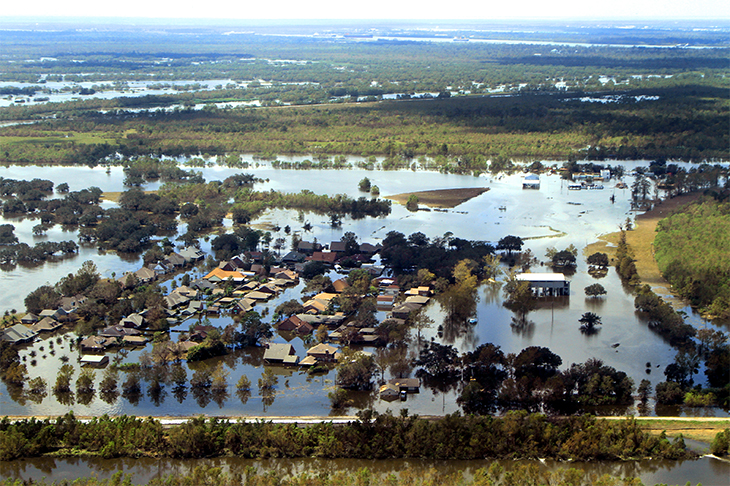Louisiana is billions short on coastal funding

The Louisiana coastal community of Braithwaite was under water after Hurricane Isaac in 2012. (Photo by Jonathan Henderson)
Louisiana could be more than $70 billion short of the money needed to implement the state"s 50-year coastal protection and restoration master plan, according to a new report by the Tulane Institute on Water Resources Law & Policy.
The report, the second in an ongoing series examining the state plan, looks at the available funding sources for the Coastal Master Plan, which the Legislature approved in 2007 and revised in 2012. The cost originally was projected at a minimum of $50 billion to curb land loss along the coast, but the total probably will be closer to $100 billion (adjusted for inflation), the report says, yet only about $21 billion over 50 years has been identified to pay for the work.
The report, “Financing the Future II,” was written by Mark Davis, director of the institute, along with former research fellow Harry Vorhoff and current fellow Dean Boyer, both Tulane law graduates.
Because of the urgent need for action along the coast, the plan calls for spending $26 billion over its first 20 years, or an average of $1.3 billion annually between 2012 and 2032. However, state revenues for restoration total less than half a million dollars a year, the report calculates.
Sources of money to pay for the plan include Louisiana"s share of oil and gas production on the Outer Continental Shelf, federal wetlands grants, state revenue from mineral exploration and funds set aside from the state"s budget surplus in 2007â“09.
Louisiana also expects to receive almost $7 billion from BP through the settlement of litigation over the Deepwater Horizon explosion. But even though that money will be paid out over several years, it"s a finite amount and won"t provide what"s needed over the long term.
“The dollars available are real and significant but they won"t be enough to see the work through,” says co-author Boyer. “That is not a criticism, it is a fact, and one that needs to inform civic and governmental action if we are serious about saving this place.”
The institute is working on research proposing other possible funding sources.
Linda P. Campbell is Tulane Law School"s director of communications.
